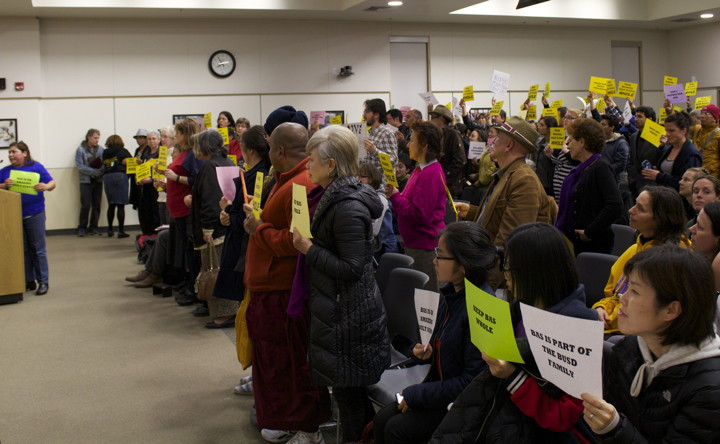Following board president Josh Daniels’ revised short-term proposal, flex rooms in Jefferson and Rosa Parks elementary schools would respectively be the first rooms used to accommodate the surplus of students. If enrollment projections call for three to five new classes, three TK sections at the King Child Development Center would be first consolidated to make space, followed by Jefferson and Rosa Parks.
The Board did not make a decision on what may happen if projections call for more than five classes, as it could not decide whether a flex space in John Muir or Emerson elementary schools would be the next in line.
It deferred to asking for a staff recommendation on what spaces would be prioritized if projections called for six to eight classes. The Board agreed to discuss it in the next meeting on Feb. 10.
For the 2016-17 school year, the Board voted on having three portables at both Thousand Oaks Elementary and LeConte Elementary and one portable at John Muir Elementary. While concerns for lack of space at John Muir were raised by Evans, the Board approved with the clarification that the portables issue will be revisited for revision in the next 18 months.
“It’s alway easier practically and politically to pull back than to expand later,” said Daniels, who proposed including a portable in John Muir in the plan.
Despite coming to consensus on how to solve the overcrowding issue for the next two school years, the long-term future remained contentious. The long-term solution has been narrowed down to two choices: developing a new elementary school on the Berkeley Adult School’s current site at 1701 San Pablo Ave. or at 1723 Oregon St., currently a maintenance facility.
The 1723 Oregon St. project would require more time and money to develop into a school than the BAS site. The former is projected to take about five years to develop and $20-25 million, according to a presentation from Asst. Superintendent Pasquale Scuderi.
The BAS site could be opened as soon as the 2017-18 school year and will cost a fraction of the Oregon Street project at between $2-3 million.
During public comments, student parents said that the Board has a responsibility to serve K-12 education first and that the BAS site was the more practical solution.
“I submit the only place available within the next three years in the Adult School,” said Joshua Room, a parent. “I think the board has a mandate to primarily serve K-12 but in doing so it must cushion the damage this change might incur.”
Several teachers, especially those who teach in the flex rooms that are in jeopardy, spoke of the impact it will have on themselves and the students.
“Room 11 is used to its best advantage,” said Lucy Ames, an art teacher at Emerson. “We’re stretched really thin. I really hope that you’ll consider other options.”
BAS supporters pushed back, saying adult education is as important as K-12 education, especially for first-generation immigrants who do not speak fluent English and lack the technical skills to find a job in the United States.
“Just as you wouldn’t considering eliminating the high school side, why would you eliminate the BAS side?” said Joyce Harrison, an ESL teacher at BAS. “We as educators have responsibility to provide for all.”
Former students told their experiences on how BAS opened new paths to community colleges and further educational developments.
“It was because of BAS that I was able to transition to college,” said Tangela Griffin, a former BAS valedictorian and student at Berkeley City College. “If this college is relocated, it would displace hundreds of people who are trying to be active members of society. I’m living proof that Berkeley Adult School works.”
KQED News Associate Berkeleyside is an independently owned news website based in Berkeley, Calif. Click here if you would you like to receive the latest Berkeley news in your inbox once a day for free with Berkeleyside's Daily Briefing email.
